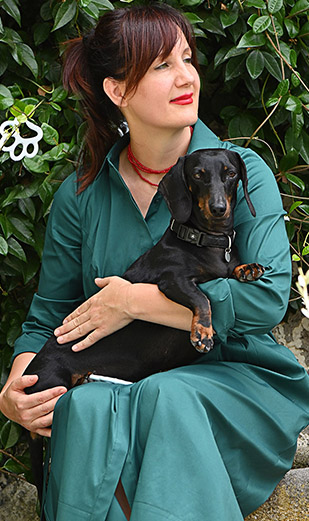When we live with a pet, we learn behavior and uses and therefore we should immediately note when they change.
To go near the litter box without a normal emission of urine but only in small drops ( disuria), intense miew, agitation and licking of genital area and above all loss of visible blood losses, both on the sand or on the areas where he rests, it is an alarm bell both for cats and dogs.
In this case put attention on the attitudes during walks.
The first thing to do would be to collect a sample of urine to have it tested at a lab of veterinary analysis with examination and reading of the sediment, to exclude the presence of crystal or gallstones ( that cause the same symptoms) and the presence of “ abnormal” cell.
If it weren’t sufficient, you should make an ultrasound of all the urine apparatus.
With a higher and higher incidence ( 97% among all bladder tumors in dogs and 80% in cats) you could identify a transactional cells tumor or TTC.
Like in the human form, this is a malignant and very aggressive tumor that affects with metastasis both near organ like lymph nodes and prostate ( only in dogs( and far one like liver and lungs.
This condition is put in evidence by the ultrasound with images of protrusions that go from the base of the bladder to the high, by stimulating urine continuously with blood losses too.
The diagnosis is made with ultrasound only, due to the characteristic of the neoplasm; only in case of doubt you can proceed with a histology test after biopsy, which is however very dangerous because of the fragility of the neoplasm and the high risk of cell propagation.
Unfortunately life expectations are very limited, often because of the not fast diagnosis and operation , we talk about a few months or 1 year latest.
The pharmacological therapies that can grant good life conditions to the animal, are not very strong against the diffusion of the tumor.
If detected soon, we can apply an oncological operation, until a total removal of the organ, but with consequent managing problems of the animal; this procedure has to be made by oncological veterinaries only.
The causes are often chemical products ( they may be the anti-parasite too) if used in larger quantities than suggested, like weedkillers used on fields and gardens where we take our dogs to walk and where they eat grass, and the obesity ( which causes problems of all kinds). The incidence seems to be higher in females and in some predisposed races like Fox Terrier, Beagle, Scottish Terrier and their cross.
The extreme similarity with the human bladder tumor will allow us to face together, veterinary and doctors, new pharmacological and surgical strategies to improve the life expectation of our 4 legged friends.











